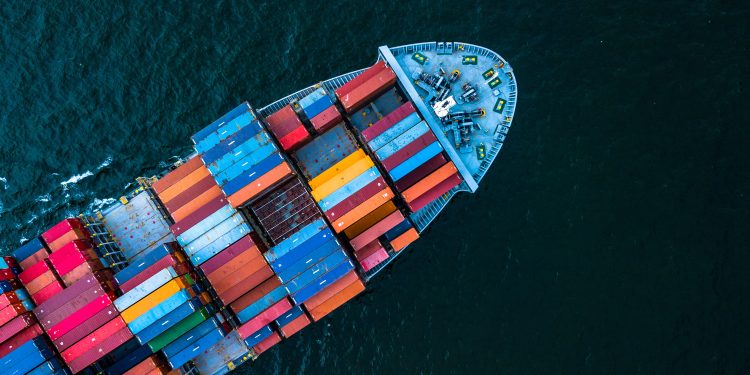FMC Commissioner Rebecca F. Dye released her Final Report on “The Effects of COVID-19 on the U.S. International Ocean Transportation Supply Chain.”
This is a two-year investigation involving hundreds of Commission stakeholders participating through Team meetings, phone conversations, emails, and presentations to various groups.
[smlsubform prepend=”GET THE SAFETY4SEA IN YOUR INBOX!” showname=false emailtxt=”” emailholder=”Enter your email address” showsubmit=true submittxt=”Submit” jsthanks=false thankyou=”Thank you for subscribing to our mailing list”]
During Fact Finding 29, importers and exporters highlighted two recurring pandemic-related concerns: the high cost of shipping cargo, and excessive demurrage and detention charges.
As Commissioner Dye stated:
The historically high freight rates experienced recently by U.S. exporters and importers have been devastating to many, but I want to emphasize that the Commission has done its job during the COVID-19 pandemic to enforce our competition authority
She also added that US markets are competitive and the high ocean freight rates have been determined by “unprecedented consumer demand, primarily in the United States, that overwhelmed the supply of vessel capacity. Congestion further constrained available capacity.”
Commission Dye also noted that during the pandemic the Commission has moved forward on enforcement of the Interpretive Rule on Detention and Demurrage and ensuring compliance by carriers with the “incentive principle” embodied in the Rule.
I look forward to implementation by the Commission of my Final Recommendations, which I believe will provide badly needed clarity and consistency in certain port and supply chain operations, especially involving “earliest return dates” and “empty container return.”
Fact Finding 29’s twelve new recommendations include:
- A new Commission “International Ocean Shipping Supply Chain Program”;
- A rulemaking to provide coherence and clarity on Empty Container Return practices;
- A rulemaking to provide coherence and clarity on Earliest Return Date practices;
- Continued Commission support for the new FMC “Ocean Carrier Compliance Program” including a new requirement for ocean common carriers, seaports, and marine terminals to employ an FMC Compliance Officer;
- An FMC Outreach Initiative to provide more information to the shipping public about FMC competition enforcement, service contracts, forecasting, and shippers associations, among other topics;
- Enhanced cooperation with the federal agency most experienced in agricultural export promotion, the Department of Agriculture, concerning container availability and other issues;
- A Commission Investigation into practices relating to the numerous charges assessed by ocean common carriers and seaports and marine terminals through tariffs;
- A rulemaking to provide coherence and clarity on merchant haulage and carrier haulage;
- A new “National Seaport, Marine Terminal, and Ocean Carrier Advisory Committee” to work cooperatively with the Commission’s National Shipper Advisory Committee;
- A revival of the Export Rapid Response Team program as agreed by all ocean carrier alliance CEOs;
- An FMC Supply Chain Innovation Teams engagement to discuss blank sailing coordination and information availability;
- A reinvigorated focus on the extreme supply chain equipment dislocations in Memphis railheads, other rail facilities, and other facilities around the country.






























































